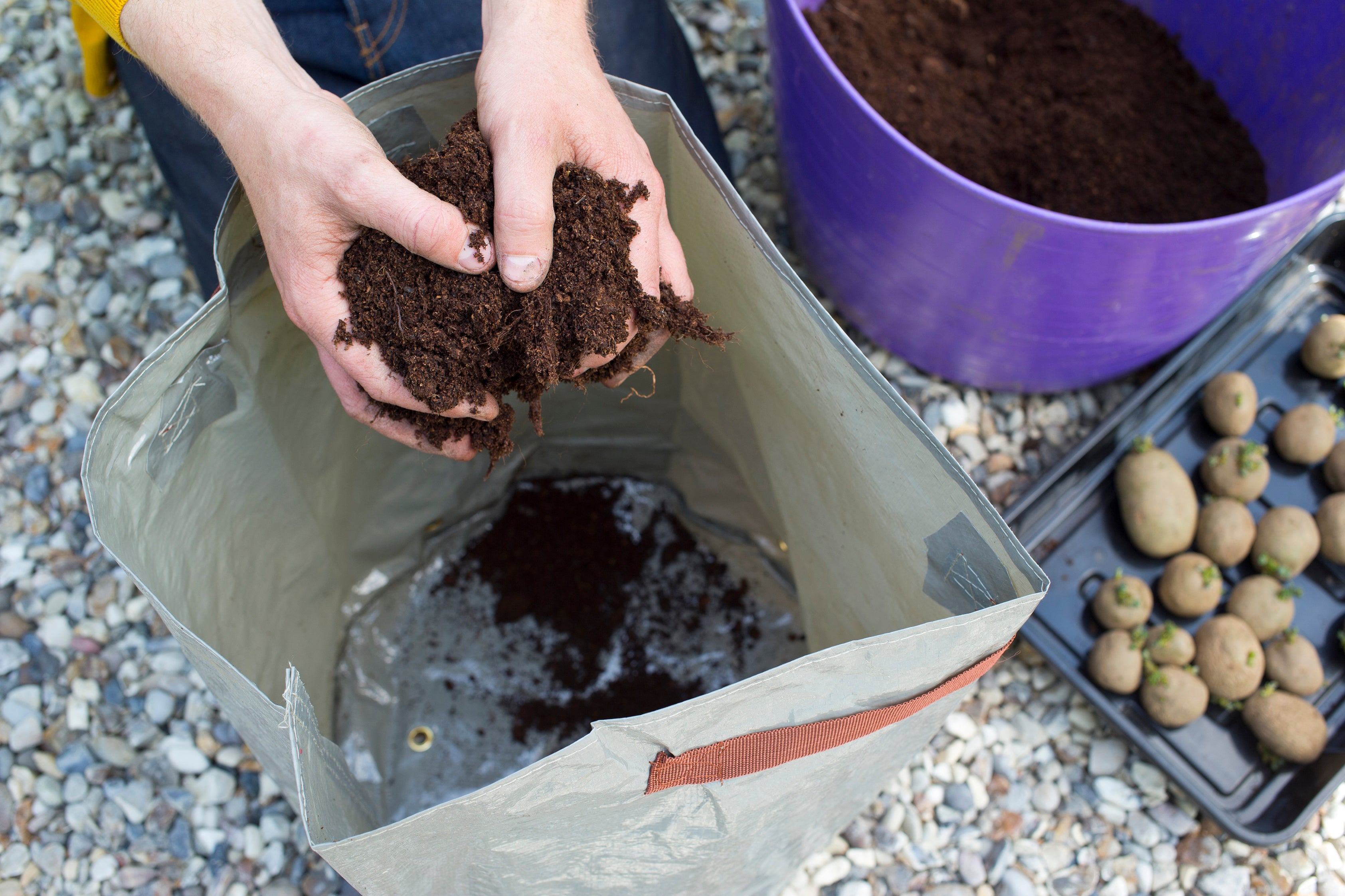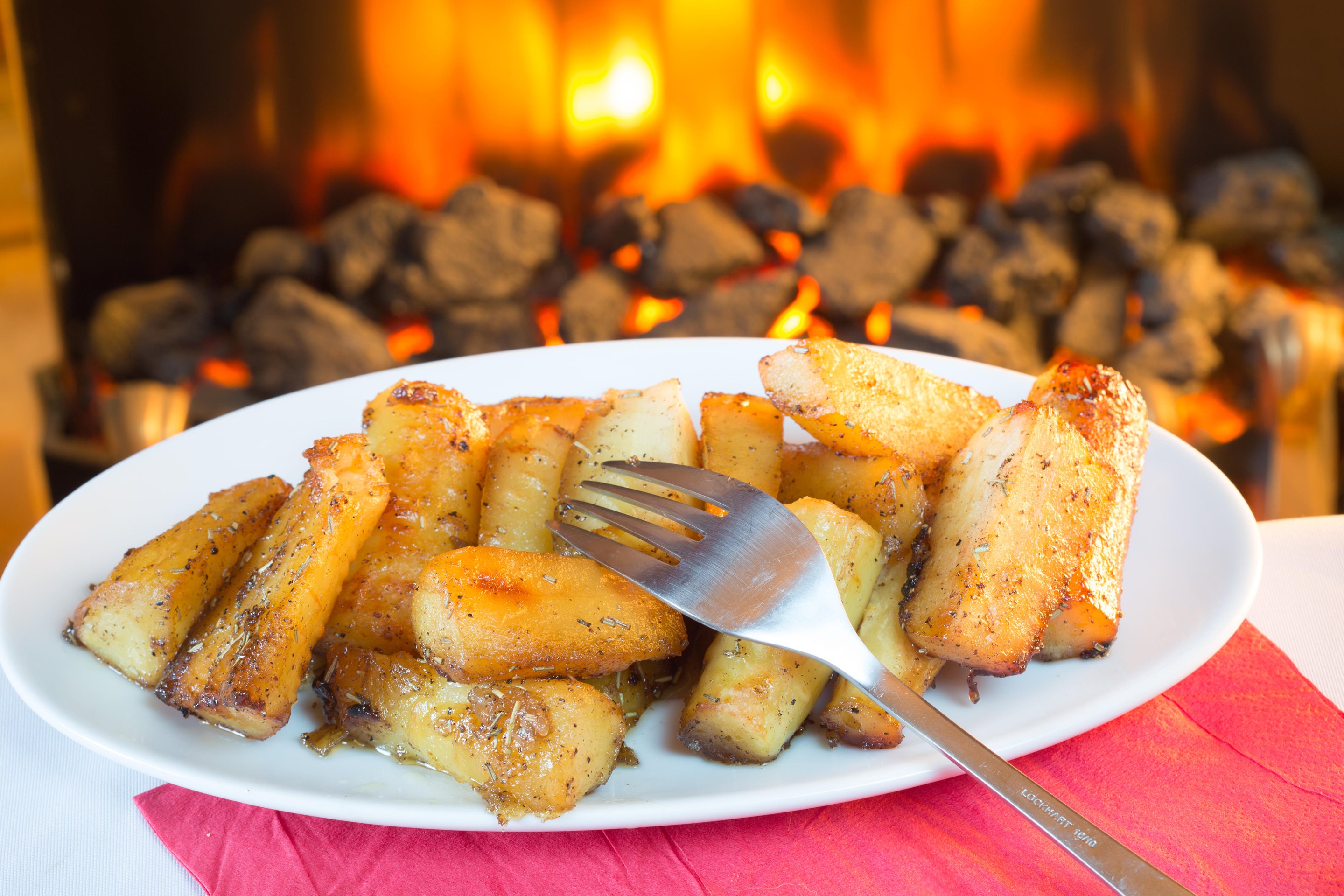Growing your own vegetables for Christmas? You’d better start now
It might seem a long way off, but now’s the time to sow your carrots, parsnips, potatoes and herbs, says Hannah Stephenson

Your support helps us to tell the story
From reproductive rights to climate change to Big Tech, The Independent is on the ground when the story is developing. Whether it's investigating the financials of Elon Musk's pro-Trump PAC or producing our latest documentary, 'The A Word', which shines a light on the American women fighting for reproductive rights, we know how important it is to parse out the facts from the messaging.
At such a critical moment in US history, we need reporters on the ground. Your donation allows us to keep sending journalists to speak to both sides of the story.
The Independent is trusted by Americans across the entire political spectrum. And unlike many other quality news outlets, we choose not to lock Americans out of our reporting and analysis with paywalls. We believe quality journalism should be available to everyone, paid for by those who can afford it.
Your support makes all the difference.Serving up Christmas dinner will have a tastier element to it if you’ve grown a lot of what goes on the plate.
While it’s too late for growing your own brussels sprouts (it may be a relief to some to hear they need to be sowed much earlier in the year), other accompaniments including carrots, parsnips and potatoes, as well as herbs such as sage – an essential for a tasty stuffing – and thyme, can all be started off now to create your home-grown Christmas dinner.
With this in mind, Dobbies Garden Centres is holding a virtual “Sowing Crops Ready for Christmas” event, hosted by its horticultural director Marcus Eyles.
He says: “Contrary to what you might think, there are plenty of crops that you can plant now to enjoy at Christmas time, including potatoes and other root vegetables such as carrots or beetroot, as well as fresh herbs for the perfect finishing touch to your meal or Christmas cocktail. “
These are his top tips on the vegetables and herbs that can be grown in time for the festive season.
Potatoes
“Potatoes are very easy to grow and grow very quickly; if you sow potatoes in July and even into early August, you’ll have fresh potatoes ready in December,” says Eyles.
Top tips:
1. Sow seed potatoes in large containers in a frost-free, sunny spot such as a porch or conservatory. Sow around three for a 30-litre container, as they need plenty of space. Place a layer of peat-free compost about 150cm deep in the bottom of your container.
2. Carefully position your sprouting potatoes on the surface, then cover with more compost and water them well. Use around three per growbag or container, or alternatively keep them 6in apart in a vegetable patch.
3. Keep an eye on them as they grow – you’ll need to cover over the shoots with compost a few times. This encourages the potatoes to multiply and stops them going green.

4. Check if they need water regularly and give them a drink when the compost feels dry on the surface.
5. Your potatoes will be ready to harvest when plants start to flower but the leaves are still green. When harvesting, if you’re using a growbag, tip the bag up and gently shake its contents out. If you’re using a container, you can use a fork or trowel to gently release the potatoes, being careful not to damage the crops.
Carrots
“Carrots need an open site with fertile and well-drained soil. They are also ideal for growing in deep containers,” says Eyles. “They are ready about 12-16 weeks after sowing.”
Top tips:
1. Sow a maincrop variety as early as possible in July. Sow the seeds really thinly, 1cm deep, in rows 15cm apart. Thin out seedlings if necessary, aiming for plants 5cm apart.
2. Carrots can grow well in drier soils so don’t need too much water, but if there is a long period without rain, soak them now and again.
3. Keep a check on weeds to stop them crowding the crop. Cover crops with insect mesh to prevent carrot flies.
4. Harvest as soon as they’re large enough to eat – smaller ones will have better flavour. Lift the roots carefully using a fork if your soil is heavy.
Mini parsnips

“Mini parsnips are great for growing at this time of year and are a perfect addition to the Christmas lunch,” says Eyles.
Top tips:
1. Similar to the process for carrots, sow these seeds as early as possible in July, or buy parsnip plants to make it easier. Plant seeds in a weed free area, sowing them 1cm deep in rows 15cm apart. If you have bought an established plant, plant these a little deeper.
2. Parsnips enjoy the hot summer months, but keep them constantly moist to ensure healthy growth, using organic feed regularly.
3. Slugs love parsnips so create a wool barrier to stop them enjoying your harvest in a safe way.
4. If you are using seeds, the harvest can happen 16 weeks into planting, while established plants can be around 14 weeks.
Kale
“Kale is an excellent way to integrate some healthy greens into your Christmas lunch, but can be enjoyed all year round and put into smoothies, salads and curries,” says Eyles.
Top tips:
1. Kale is hardy, surviving all year round, tolerating even the coldest months. It can be grown in raised beds or containers, but covering the crop with an insect mesh is advisable to stop caterpillars.
2. Kale can be planted up late in the summer. Sow seed around 1cm deep into well-drained and light soil. If you are planting young kale plants, you should plant as deep as the soil they are already in.
3. Manure or chicken pellets can be incorporated into the soil to boost the crop. Water regularly and pick the leaves weekly to ensure they don’t start to flower.
Herbs
“For festive flavours, I recommend sage, rosemary, thyme and oregano, but you can choose your favourites,” says Eyles.
Top tips:
1. Place a window box or planter in the sunniest spot you can find and place some crocks (broken terracotta) in the bottom for drainage.
2. Half-fill the container with loam-based compost, mixed with some potting grit. Plant your upright herbs in the centre, and your trailing herbs towards the edges.
3. Fill up with compost and remember to water them regularly and keep them somewhere warm, so that by Christmas, you’ll have an abundance of fresh, tasty herbs to snip. Pick them regularly to encourage growth.
The ‘Sowing Crops Ready for Christmas’ virtual event is taking place on Saturday 24 July, as part of a series of free virtual events that Dobbies is hosting in 2021. For details visit dobbies.com/events.
Join our commenting forum
Join thought-provoking conversations, follow other Independent readers and see their replies
Comments